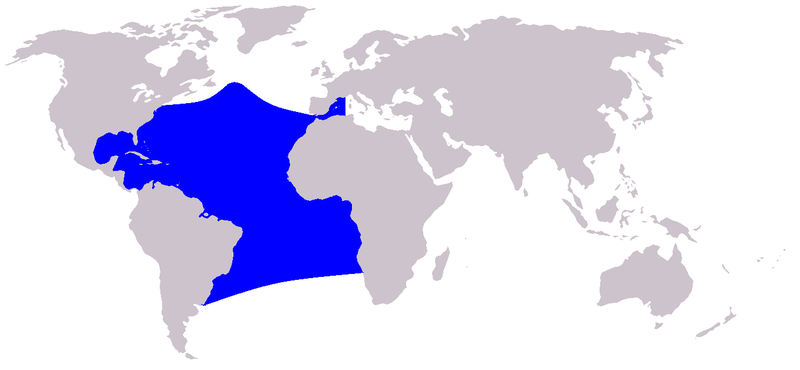 |
Home is where the heart is




|
Atlantic spotted dolphins tend to
live in tropical and warm/temperate waters. They live in the
Atlantic Ocean ranging from the northern United States to South America.
The Bahamas and Gulf of Mexico region hold many Atlantic spotted
dolphins. These dolphins are known to inhabit both offshore (away
from shore/near the continental shelf) and inshore(in shallow waters
near the shore) waters. Those that are offshore are found mostly
in the tropical oceans located north of the equator and around the
Galapagos Islands.

These dolphins tend to stick to shallow waters, gulf coasts, and the
continental shelf. There are many other organisms that inhabit
their niche along with them. Other dolphin species, such as the
Bottlenose dolphin and the
Spinner dolphin, are also commonly seen
where the Atlantic dolphins live. They are even known to go
looking for food together!
Along with other dolphins, there are predators (mainly sharks) and the
types of prey the Atlantic spotted dolphins feed on (such as eels,
herring, tuna, squid, and other fish species). Atlantic spotted
dolphins are
predators
in their natural environment. The world-wide spotted dolphin,
Stenella
attenuata, has
been found in what is called the "ETP." The "ETP" is the eastern
tropical Pacific Ocean. Stenella frontalis is not found
in the ETP because the Pacific Ocean does not fit into their niche.
Atlantic spotted dolphins are found only in the Atlantic Ocean, like in
the above map.
Dealing with the food chain, dolphins are towards the top. Sharks can
eat them, but dolphins are usually pretty good at avoiding that.
Dolphins are carnivores and great predators. Their
adaptations
to getting food are what make them such great predators in the open
ocean.

Go back home
Continue to learn about
Adaptations
| 
|

|
 |